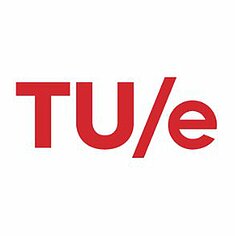Eindhoven Semicon Summer School attracts worldwide talent
The students will visit semicon companies, attend lectures from top specialists, and work in teams on challenges.
Sixty top students worldwide will join the Eindhoven Semicon Summer School (ESSS) from August 26 – 30, 2024. The ESSS is a unique summer academy, offering students a comprehensive program in the semiconductor industry, covering everything from equipment and devices to circuits, systems, and applications, delivered by top specialists from a wide range of leading semicon companies and knowledge institutions. The week is being organized by Eindhoven University of Technology (TU/e) together with founding partners, including ASML, ASM, NXP, SMART Photonics, TSMC, imec, Axelera AI and Neways.
Very best talent
The aim of the summer school is to attract the very best talent to the Brainport region, one of Europe’s strongest semicon and photonics hotspots. The sixty participating students are both bachelor and master-level students from universities in Taiwan, the USA, Spain, Italy, Romania, Lithuania, Vietnam and Thailand as well as from TU/e. The exclusive five-day program not only gives the students valuable insights into a wide range of relevant topics but also brings them into contact with top experts from industry along with visiting professors and with each other, providing them with a very important international network for their professional future.
Top speakers
The students will visit semicon companies along the value chain (ASML, NXP, and SMART Photonics) and hear about the latest developments, trends, and challenges from thought leaders and specialists. These include keynote speakers Paul Verhagen (CFO ASM), Rob Frijns (CTO NXP), Paul de Bot (President TSMC Europe, Middle-East, Africa), and many more. On top of that, the opening ceremony features ASML CEO Christophe Fouquet and TU/e Executive Board President Robert-Jan Smits. The students will also go on study tours, meet with young professionals, and work together in teams, applying their disciplinary knowledge and insights gained during the summer school.
Top specialists of the future
Silvia Lenaerts, rector magnificus of TU/e: “The EU launched its European Chips Act last year to expand Europe’s position in the worldwide semicon industry. The crucial element here is talent: we need to educate the semicon top specialists of the future. Our summer school aims to play a pivotal role in semicon talent development and network creation. It also highlights the unique semicon and photonics ecosystem of the Brainport region and the important role of our university in this ecosystem.”
A lifetime of exciting challenges
“At ASML, we are pleased to open our doors to students around the world, showing them that the semiconductor industry is an exciting and dynamic place to be,” says Christophe Fouquet, CEO of ASML. “Engineers graduating today have a chance to push the limits of technology further with a lifetime of exciting challenges ahead of them.”
Closing the talent gap
Paul Verhagen, CFO of ASM, adds, “The semiconductor industry in the Netherlands will need talent well above the current forecasted availability. This initiative is an important step to start closing that talent gap.”
First of its kind
“The ESSS is truly a first of its kind worldwide, with a comprehensive program in semicon covering aspects from production equipment, devices, and circuits to systems and applications, with the participation of top companies,” says ESSS Scientific Director Aida Todri-Sanial. “It is a one-stop shop for starting on semiconductor studies, one that enables students to further their education in this field. In addition, the summer school helps reinforce our position as a leading university for semicon but also helps strengthen the semicon ecosystem of TU/e and our partners.”
Project Beethoven
The ESSS is part of the TU/e’s Future Chips flagship, which brings together the roughly 700 TU/e researchers working in various fields of semicon science. The summer school aligns well with other developments in the Brainport region aimed at supporting the ongoing growth of the semiconductor industry. To support this growth, earlier this year, the Dutch government and partners decided to invest 2.5 billion euros (‘project Beethoven’) in infrastructure, knowledge, and talent. TU/e and its partners are set to play an important role in this.
Number of students has doubled
Last year saw the first edition of the summer school, with thirty participants from TU/e and Taiwan. This year, the number of students has doubled, the student intake has become worldwide, and the number of top organizations taking part has increased significantly. The aim is to eventually attract 100 top students each year with a world-class program.
TU/e’s Eindhoven Hendrik Casimir Institute organizes the summer school. More information can be found on the website: https://www.tue.nl/en/research/institutes/eindhoven-hendrik-casimir-institute/esss
The full program can be found here: https://www.tue.nl/en/research/institutes/eindhoven-hendrik-casimir-institute/esss/program-information#c383660
